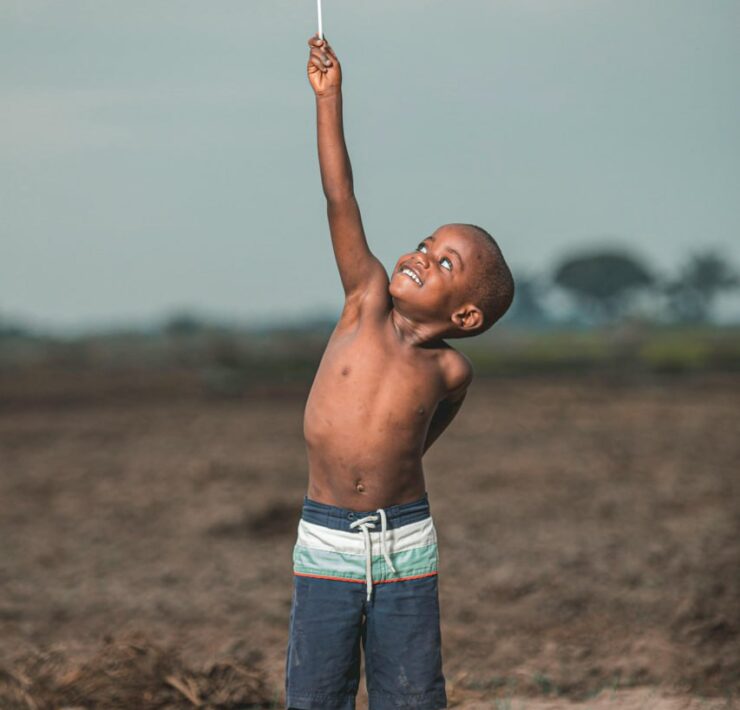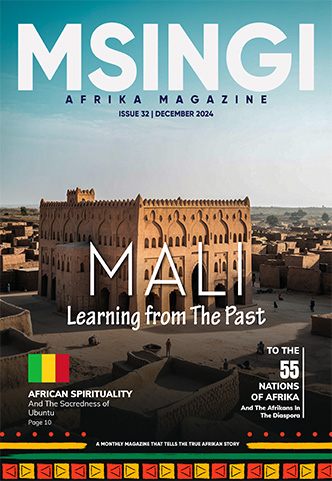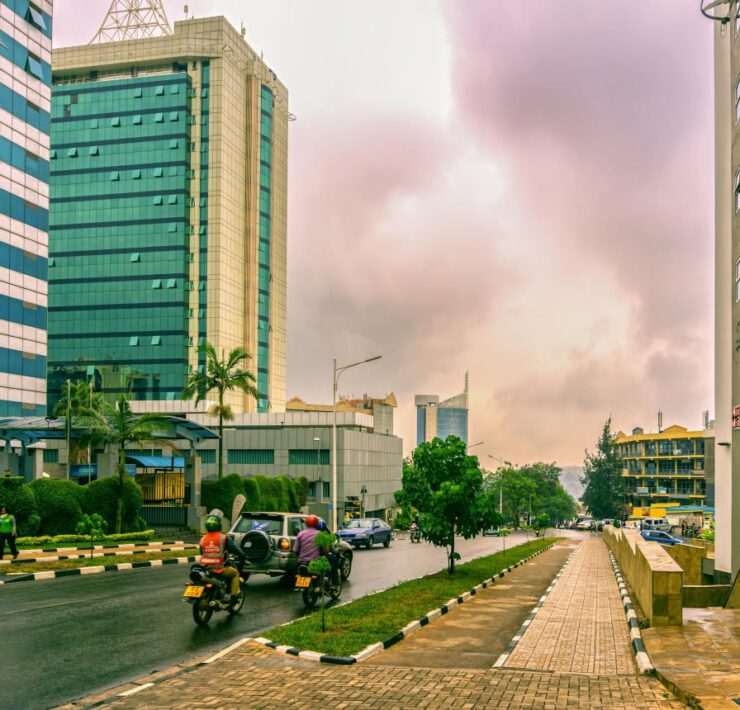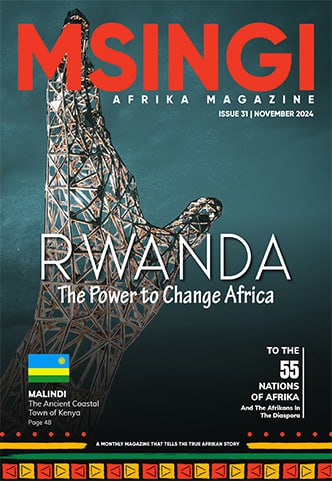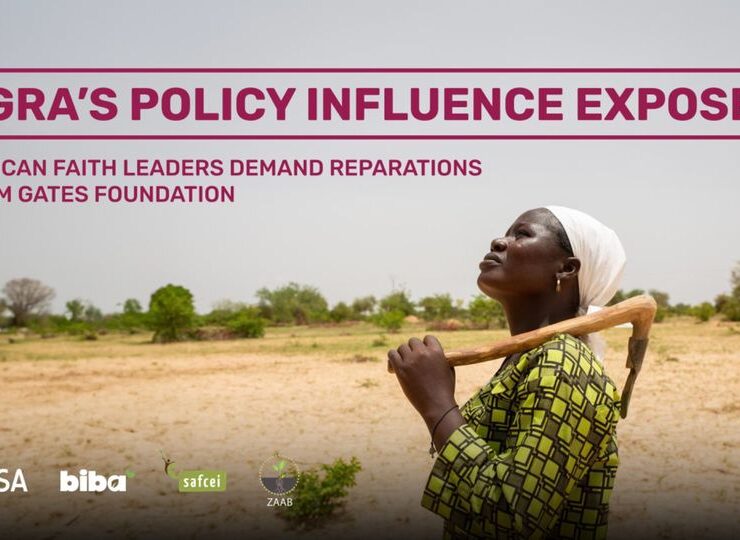
Is a practicing Kenyan journalist who is passionate about telling…
Read Next
The African continent is massive and is endowed with diversity and lots of resources to tap from, her people deeply versatile in nature, yet most countries in the continent have not realized strategic ways and methods on how to exploit such. As such, much of what may be termed as resourceful to the larger percentage of people who call Africa home could just be an illusion mated with lots of misconceptions.
It is against the backdrop of the above quantifiable statement that this article will seek to bring to your perspective the untapped potential and capabilities that Africa has failed to realize over the years and therefore try to suggest some of the setbacks vis a vis solutions foreseen to be of great impact going forward towards posterity.
At present, there are just 10 countries in Africa that receive $1 billion or more per year in tourism revenues, signaling enormous potential for market growth across the continent. Indeed, the region’s natural endowments, as well as untapped cultural and historical resources, offer numerous opportunities to attract visitors. At the same time, however, in light of the relatively low-income levels of most Africans, industry growth presently depends, to a large extent, on attracting visitors from other world regions.
Beyond the potential for capitalizing on natural and cultural endowments, therefore, the strongest candidates for investment are those countries with well-developed travel infrastructure, relatively open international movement policies, and an attractive environment for starting a tourism-related business.
According to United Nations estimates as of February 2021, Africa’s population is equivalent to 16.72% of the total world population with the median age at 19.7 years. These stats are evident of the widely existing youthful category of people in the continent and consequently, raises eyebrows about the fears of overpopulation in Africa and whether proactive measures should be taken to avert the avarice. Evolving in tandem with this exponential young population, vast labor opportunities can readily be presented with express motive of building a sustainable and albeit resilient Afri-conomy.
Besides setbacks, for instance high unemployment rates, income exploitation by foreign investors, gradual influx of expatriates, and issues on graft, Africa is riddled with low per capita incomes which also affect access to quality education that is critical to successfully achieving a complex and independent economy. South Africa, for instance, spends 6 percent of its gross domestic product on education, which is higher than the average for the more developed nations that are members of The Organization for Economic Cooperation and Development. Yet, nearly 80 percent of the country’s 9 and 10 year olds are unable to read. Even the quality of teaching leaves a lot to be desired, given that 80 percent of mathematics teachers cannot solve the problems presented to their students. In fact, of every 100 students who pass through South Africa’s education system, only 40 to 50 will go to university and only six will graduate.
The combination of all these factors; a massive youth demographic, deterrent (non-adaptive) formal education, low incomes and spiralling unemployment rates – means it is only a matter of time until young people take to the streets and demand to be heard. This is not hyperbole. It already happened during the 2011 Arab Spring revolutions, in which youth played an integral role in toppling authoritarian regimes in Tunisia, Libya and Egypt.
Fortunately, there are viable solutions that can tap into this growing potential, harnessing it to generate explosive economic growth. It is estimated that Africa’s GDP could reach $29 trillion by 2050, a massive leap from the current $7 trillion. To achieve that, African economies will need to sustainably grow by more than 5 percent every year. The World Bank expects them to grow by 3 percent this year (2021), which is a positive sign but still well below the rate needed to reach that 2050 milestone.
To accelerate economic growth, Africa will need to rely on its massive labor pool, as well as its wealth of resources. The IMF predicts that by 2035, Africa’s working-age population will exceed that of the rest of the world combined. Well, as for resources, the continent has 65 percent of the world’s uncultivated arable land. In the energy sector, 45 out of 55 African countries have oil reserves and the continent has 8 percent of the world’s natural gas. The hydroelectric potential is an estimated 1,850 terawatt hours every year, three times the current demand. There is a further 1,300 gigawatts of wind-power potential, along with untapped geothermal sources and the largest solar energy reserves on the planet, between the Sahara and the Kalahari deserts. There is also an abundance of underground resources such as cobalt, manganese, diamonds, phosphates (fertilizer) and gold.
Unleashing this potential requires a whole-of-society approach to mitigate the already visible risks of the forgotten youth demographic.
Challenges of Tourism in Africa
1. Infrastructure and institutions.
African ministries for tourism tend to be under-funded, requiring donors or investors to step in and fill the gaps. In some cases, donor-driven development can be extremely effective—for example, an “anchor development” site in Tunisia received initial stimulus from Western donors, which ultimately led to the buildup of a destination that now receives 7 million tourists each year and accounts for 7.5 percent of annual GDP. Although there is some variation, even the more developed African destinations face problems related to unsafe roads, inadequate water supply and sanitation, poor access to hospitals and other emergency services, expensive and inconsistent electricity, and inadequate construction procedures.
Indeed, one of the major challenges for tourism businesses in Africa, especially those working in more remote destinations like safari lodges, is how to ensure safe, reliable, and affordable access for clients. While domestic movement is most often restricted by the quality of roads and public transit infrastructure, international access is often constrained by complicated and expensive visa procedures, as well as poor development of the aviation industry.
2. Economic risks.
Related to the problems of lack of infrastructure and economic mismanagement is the high cost of doing business in Africa, which is particularly acute in the tourism sector due to importance clients give to the price-value ratio. Within the region, it is more expensive to develop a hotel in countries with higher import duties and weaker infrastructure for construction projects—such as Angola, Ghana, and Nigeria—and these high costs are passed on to consumers. Where travelers face higher costs, they expect a higher quality of experience, but many tourist destinations and attractions in Africa remain poorly managed.
Most international hotel chains are run as local franchises and, thus, rely on domestic capital and local staff, which necessitates improvements in local capacity. The low quality of customer service is often attributed to the lack of education levels in the region in general, and the absence of hotel and restaurant management training courses in particular. This could hinder the further development of the industry by potentially driving consumers away. Therefore, investing hugely in a more strong education system will equip and empower Africans to spur a viable and resilient economy.
3. Environmental and security risks.
In the absence of effective coordination and management of environmental conservation policies, the natural assets that bolster Africa’s potential for tourism development are likely to deteriorate. The continent is facing a widespread problem of deforestation and the potential extinction of its most popular wildlife species due to habitat loss and poaching. Despite some recognition and collaboration by African governments to address these problems, most countries in the region perform well below the international average in terms of environmental sustainability. Many businesses are finding creative solutions to these problems. One of which is the use of solar panels, which reduces contributions to carbon emissions, while also limiting reliance on unreliable electricity supply chains and lowering operational costs. The tourism industry is responsible for about 5 percent of anthropogenic carbon emissions in Africa, and the share is growing. Given that climate change will pose a major impediment to the global tourism industry in the coming decades, the rise of eco-tourism is a promising pathway to build positive feedback loops between tourists and environmental preservation.
4. Peddling contemporaries from abroad
Africa is home to diverse cultures and we celebrate our beautiful different ethnic backgrounds. Although distinct, we share many similarities. The African culture stands strong to depict core values like love, respect, positivity, and a deep sense of community. These values are prominently expressed in the African way of life, particularly in arts and crafts. While every item that comes from the continent is a bold expression of its roots, it can be adapted to fit many lifestyles. Fashion, Jewelry, Artwork and Interior décor are among avenues through which Africans can uniquely express their roots and artistic minds.
However, an ever present envy and admiration of cultures from the west have majorly been pivotal to the frowning value down-surge of African domestic customs and ‘Heritage of Splendor.’ While embracing all which is categorically reminiscent of the true nature of the African spirit, the base concept of Africanism is to value and appreciate anything that bears the tag-line ‘African.’
Among challenges that African countries need to address is the lack of strong, independent judiciaries. It may seem unrelated but in matters of investment and movement of capital, contracts are extremely significant, as are the mechanisms that enforce them. It is impossible to generate sustainable economic growth and prowess without the rule of law – a key factor that affects foreign direct investment inflows. Global FDI flows amounted to $1.43 trillion in 2017 but Africa received only 3 percent of that.
Effective judiciaries will also be vital to the inevitable construction boom and speedy infrastructure development in the wake of rapid economic growth. Legal challenges to eminent domain, land development, zoning and construction-permit issues will all need speedy, binding solutions to prevent critical projects from stalling, which would affect jobs, slow growth and limit FDI inflows.
Digital transformations are crucial to sustainably transforming informal-sector enterprises into regulated formal-sector entities. Africa’s informal sectors currently are the continent’s largest employer, even though participants do not contribute to public revenues. Governments have attempted to focus on punitive and regulatory measures to “force” formalization or disrupt the informal-sector completely. Already, the continent is rapidly adopting and using mobile money in lieu of bank transfers and physical cash transactions. Governments can take this a step further by providing citizens with access to a wide range of public services in a “self-serve” capacity online or using mobile phone applications. A public-records agency need only collect digital records of citizens and make them accessible via a user-friendly mobile application. Entrepreneurs could also tap into this “big data” and create revenue-generating opportunities through mobile applications that can inform users on a wide range of subjects.
In transport, new regulations would require operators to have insurance and up-to-date maintenance records for all vehicles. Drivers would need licenses and to register as commercial operators with the authorities. Operators who fail to do so would not have access to newly built transport hubs run by local governments or city councils. These local authorities would sell slots to operators to control congestion, and charge for leases to businesses seeking to benefit from the enormous foot traffic there.
It is better to offer chances for informal sector participants to register themselves or their businesses as legitimate entities. Governments can incentivize vendor registration, for instance, by building fully outfitted modern marketplaces where registrants can easily set up their businesses. Authorities can, as part of the registration process, insist that traders use mobile payments. This way, governments can quickly and more accurately gauge the level of activity in a given area in real time.
Other reforms and investments would also be made in the agricultural sectors, which already employ about 64 percent of the continent’s labor force, including women. Reforms would aim to reduce subsistence farming by incentivizing the formation of farming associations or communes. This would allow farmers to access advanced farming methods, agricultural technologies, farming implements and machinery to boost productivity and reduce top-soil erosion and deforestation.
The general principle is not to build barriers to entry but to push informal-sector enterprises to merge or partner up to guarantee longevity and stable employment opportunities and collectively eradicate the elephants ravaging Africa’s sustainability. Overall, governments ought to only invest in targeted infrastructure development. Ownership and control of the new marketplaces and transportation hubs will be left to local authorities to turn them into revenue-generating opportunities.
Subscribe now for updates from Msingi Afrika Magazine!
Receive notifications about new issues, products and offers.
What's Your Reaction?
 PIN IT
PIN ITIs a practicing Kenyan journalist who is passionate about telling African stories that demonstrate its universal prowess. I aspire to be an influential and established financial coach, which will well help me educate my fellow Africans on reasonable practices that would ensure economic soundness and sanity for Africa. I write as a hobby and as a profession. I'm typically an Africanist championing for a better Africa today and in the days ahead.
















